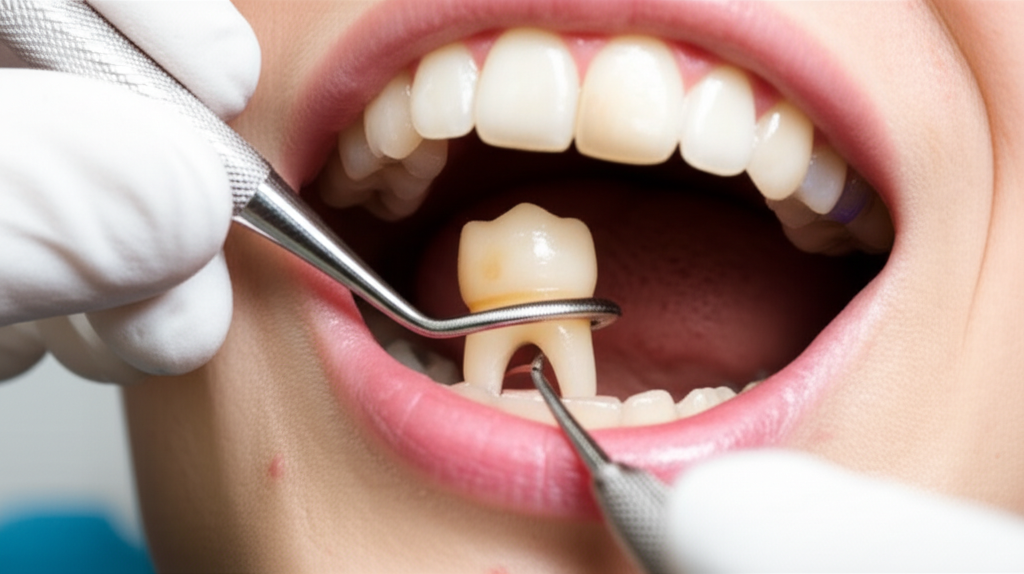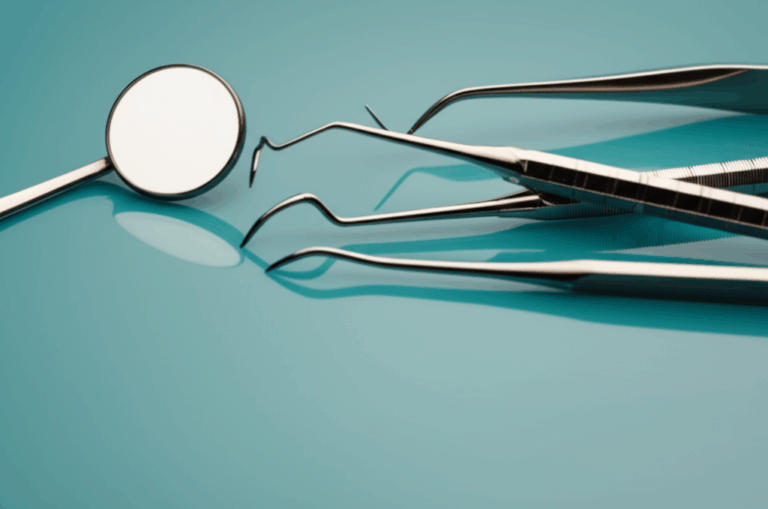
Can a Dentist Pull Wisdom Teeth? My Guide to Making the Right Choice
Table of Contents
Introduction: The Short Answer & What You Need to Know
When I first felt some pain at the back of my jaw a few years ago, I just wanted to know: can my dentist take out my wisdom teeth, or do I have to go see a specialist? If you’re asking the same thing, you’re definitely not the only one.
Here’s the simple answer I wish someone had told me sooner—yes, most regular dentists can pull wisdom teeth, but it depends on what’s going on in your mouth. Sometimes, it’s a quick problem your dentist can handle right in their office. Other times, things are more tricky, and you need a specialist called an oral surgeon, who’s got extra training. The important part is knowing which is right for you.
I’m going to take you through how I decided, what I asked, and all the stuff I learned (sometimes the hard way). By the end of this guide, you’ll know what to expect, how to be ready, and how to pick the best person to pull your wisdom teeth.
When Can a General Dentist Remove Wisdom Teeth? (Simple Cases)
What Makes a Case “Simple?”
General dentists—the ones who clean your teeth and fill your cavities—are taught to take out teeth, including wisdom teeth, in a lot of cases. I found out pretty quick that it all comes down to if your wisdom teeth are:
- Fully in: They’ve popped out of your gums already
- Straight and easy to see or reach
- Not stuck under the gum or bone
- Roots aren’t twisted or weird
- Low chance for problems (like being near a really important nerve)
Those are the “simple” wisdom teeth. If that’s you, your regular dentist can probably do it—sometimes even that day if you’re already in the chair! It’s easy and, from what I saw, often a bit cheaper.
My First Wisdom Tooth Extraction
The first time my wisdom tooth hurt, my dentist took a big X-ray and showed me my upper wisdom tooth was all the way through and looked easy to get out. He said, “This one is no trouble—I do these all the time.” And that was true. A bit of numbing, some pushing (but not real pain), and a short time later—it was over. He put in a couple stitches, and I was out of there in about an hour.
Why I Chose My General Dentist for My Extraction
To be honest, I picked my regular dentist because I already liked him. My insurance covered most of it, and I didn’t have to mess around finding someone new. For simple wisdom teeth, you get:
- Someone you know and trust
- Usually lower cost than an oral surgeon (especially if you don’t need to be put to sleep)
- Faster—sometimes you get an appointment right away
But, not every dentist wants to take out wisdom teeth themselves—so always ask how often they do this stuff.
When Is an Oral Surgeon Necessary? (Complex Cases)
Types of Impactions and Complexities
Here’s where it gets a bit harder. Most adults have at least one wisdom tooth that’s impacted—which just means it’s stuck under the gum or bone, or comes in at a weird angle. That’s when it starts getting risky or tough, and it’s better to see an oral surgeon.
Kinds of impaction:
- Full bony impaction: Tooth is all the way under the bone
- Partial bony impaction: Tooth is partly under bone
- Soft tissue impaction: Tooth is just under the gum
- Odd angles: Tooth is sideways, tilting backward, or even upside down (it really happens!)
Other tough cases:
- Roots wrapped around nerves (like the big ones in your lower jaw)
- Odd shaped or thin roots
- Infections, cysts, or lumps nearby
- Medical issues that mean you need special anesthesia
- When you need deep sedation (IV or put to sleep)
My Experience Needing an Oral Surgeon
My second wisdom tooth was much worse. The bottom tooth never came out, and the X-ray showed it was sideways, right near a nerve. My dentist looked at the X-ray and said, “Time to see an oral surgeon. This one’s tricky.” That surgeon had the extra training, tools, and ways to keep me safe during surgery. I was glad for the referral—it’s not the same as a regular, simple pull.
Why Oral Surgeons Are the Best Choice Sometimes
Oral surgeons are like the “special team” of dental world. They handle tough roots, strong anesthesia, infected teeth, close nerves, and any case that’s not easy. It made me feel better knowing my hard tooth problem was in a specialist’s hands.
How Do You—and Your Dentist—Decide Who Should Pull Your Wisdom Teeth?
Assessment, X-rays, and Personal Factors
Before anyone does anything, you’ll need to get checked out. Here’s what happened to me:
- My dentist did a mouth exam, then sent me for a big X-ray (and sometimes a 3D scan if things looked rough)
- He looked at where my wisdom teeth were, how close to nerves, and if there was infection or other stuff to worry about
- We talked about my health, medicines, allergies, and how much numbing or sedation I wanted
General Rule
- Easy cases: Your dentist can do it
- Hard or risky ones: You get sent to an oral surgeon
Some dentists pull wisdom teeth a lot. Some send almost all of them out to surgeons. It depends on the dentist, so just ask.
Questions I Asked My Dentist
- How many wisdom teeth do you pull a month?
- Do you usually do tough, impacted teeth?
- What kind of anesthesia do you use?
- Have you had problems before?
- Should I see an oral surgeon for my tooth?
- How long will it take to get better after?
Seriously—asking these saved me time, money, and worry.
What Happens During Wisdom Tooth Extraction?
Consultation and Diagnostics
The first visit is about checking you out and making a plan. Here’s what you get:
- Exam: The dentist looks at your mouth for swelling, infection, and how your wisdom teeth are coming in.
- X-rays: Big pictures or 3D scans show exactly where your teeth and nerves are.
- Talk: Dentist tells you what your choices are, along with risks, good and bad points, costs, and who they think should pull the tooth.
I remember staring at my X-ray with my dentist and trying to understand it. Luckily, he pointed out what would be easy and what wouldn’t.
Anesthesia Options Explained
Not every removal is the same. I had it both ways—just regular numbing for the simple tooth, and IV drugs for the really hard one. Here are your choices:
- Local anesthesia: Just numbs the spot
- Laughing gas: Helps you chill out
- Oral sedation: Pills to calm your nerves
- IV sedation: You’re not asleep but you’re really relaxed (usually with an oral surgeon)
- Full anesthesia: You’re out cold—used for super tough or lots of teeth, only in surgery centers or hospitals
They will suggest what’s best and safe for you.
Step-by-Step Extraction Process
Here’s how it usually goes:
A fast, simple pull is 10 minutes. A tough surgical one can be over an hour.
Recovery and Aftercare: My Tips for Healing
What I Did Right After the Procedure
When I left the dentist, my face was numb for a few hours. I bit gently on gauze for about 30-45 minutes to help the blood clot. The blood clot is super important—you really want it to stay there, or you could get a painful problem called dry socket.
Pain, Swelling, and Managing Discomfort
What worked for me:
- Pain: My dentist gave me ibuprofen. Sometimes, acetaminophen. For really tough surgeries, you might get something stronger, but I didn’t need that.
- Swelling: Used ice packs 20 minutes at a time for the first two days.
- Take it easy: I rested, skipped sports and hard work for a few days.
Swelling got worse around day 2 or 3, then got better by day 7.
Food, Hygiene, and Avoiding Problems Like Dry Socket
Eating after a wisdom tooth comes out is no fun.
- Soft foods only: Yogurt, mashed potatoes, soup, smoothies (no straw!), scrambled eggs.
- No straws: Suction can pull out your blood clot.
- No hot, spicy, or crunchy foods: They can hurt or make you bleed.
- Careful brushing: I brushed the other teeth like normal, but was gentle around the hole. After 24 hours I did salt water rinses to keep it clean.
- Don’t smoke or drink for a few days.
- Look for infection: If you get more swelling, pain gets worse, weird taste, or fever—call your dentist or oral surgeon.
Common Complications
- Dry socket: Happens in about 2–5% of basic cases, but up to 30% of hard bottom wisdom teeth cases (especially if you smoke or take birth control). It means the blood clot is gone and bone is showing. Very painful, but can be fixed.
- Nerve injury: Rare (less than 1%), but can make your lip or tongue tingly for a bit, especially with bottom teeth.
Follow-ups matter! My surgeon had me come back after a week to make sure I was healing okay.
Cost: Dentist Vs. Oral Surgeon (What I Paid and Why)
Typical Price Ranges
Money is a big part of picking a dentist or oral surgeon. Here’s what I learned:
- Easy removals (each tooth): $75 – $250 (at my dentist)
- Surgical or tough removals (each tooth): $200 – $600+ (at the oral surgeon)
- IV or general anesthesia: Another $300 – $1000+
- Extra work: Like fighting infection, bone grafting, or cyst removal makes the price go up more
Prices change a lot depending on where you live, which tooth, and your health.
Insurance, Payment Plans, and Hidden Expenses
My dental insurance paid for most of my first, easy removal at my regular dentist. For the harder, surgical one with IV drugs at the oral surgeon, I paid more myself. Some offices had payment plans, which helped.
Tip: Always check what your insurance covers—sometimes they pay differently for dentists vs. oral surgeons, especially if you need more anesthesia.
For lab needs (like crowns or bridges after removing teeth), I learned working with a good china dental lab means you’ll get solid, low-priced replacement teeth.
Why Remove Wisdom Teeth at All?
Back when I was a teen, I also thought, “Why not leave them in?” There are actually pretty good reasons:
Common Reasons and Risks
- Pain and swelling—the obvious sign something’s up
- Pericoronitis: That’s when the gum gets infected around a half-out wisdom tooth. It sucks.
- Crowding: Wisdom teeth can push your other teeth, mess up braces
- Hurt other teeth: Impacted wisdom teeth can press on other teeth, cause roots to shrink or get cavities
- Lumps and bumps: Cysts or lumps can grow around them (not common, but possible). X-rays help catch these early
- Hard to clean: Partly out teeth trap food and germs
- Just to prevent future problems: Sometimes (especially in teens), dentists pull them before problems start. People usually heal better when younger
Most wisdom teeth come out because of infection or pain, or because they could cause trouble later.
Making the Right Choice: General Dentist or Oral Surgeon?
Here’s what helped me choose:
- They know you and have your file. They’ll take X-rays.
- If they say “oral surgeon,” there’s probably a good reason.
- Ask about their experience, cost, recovery time, and what drugs will be used. It’s your mouth—you get a say!
- When my tooth root looked near a nerve, I talked to a second dentist before surgery. Made me feel better.
Bottom line: Both dentists and oral surgeons can pull wisdom teeth. Harder cases need an expert, but easy ones are often done by your regular dentist and will cost you less.
If you need new teeth after, talk to your dentist about where they send their stuff to be made, so you get good replacements.
Conclusion: Putting Your Oral Health First
If you remember one thing from my story, let it be this: the right person to pull your wisdom teeth depends on your own mouth. If you’re not sure, ask. Bring up your worries. Don’t rush to book the first spot you’re offered if it doesn’t sound right to you.
I’ve had teeth pulled by both a dentist and an oral surgeon. Both were the right pick for different times. With a good check and proper care after, you’ll get through it—and keep your smile healthy for a long time.
Ready to get started? Book a visit with your dentist, bring your questions, and ask for a referral if you need one. The sooner you know what’s going on, the easier your healing will be.
Frequently Asked Questions
Q: Can any dentist pull wisdom teeth?
A: Most regular dentists are able to remove wisdom teeth—but only if they’re fully out and not stuck. For tricky cases, you’ll likely need to see an oral surgeon.
Q: Is it cheaper if my dentist does it?
A: Most of the time, yes—for easy pulls. But the price goes up for harder teeth, or if you need stronger drugs or surgery.
Q: What if I’m really nervous?
A: Tell your dentist. Dentists and oral surgeons both have ways to calm you down. Oral surgeons can give you stronger medicine if needed.
Q: How can I heal quickest after tooth removal?
A: Follow what your dentist or surgeon tells you—rest, use ice, eat soft foods, take your medicine, don’t smoke or use straws, and keep your mouth clean to avoid dry socket.
Q: Will insurance pay for getting my wisdom teeth pulled?
A: Usually, for simple cases. For tougher or special cases, you may have to pay more. Always ask your insurance before you book.
For more tips on new teeth or crowns after your extraction, check with your dentist about where they get them made, or read about crown and bridge lab options.
Remember: Wisdom teeth don’t have to be a big headache. With the right help, you’ll feel better and be smiling soon.








